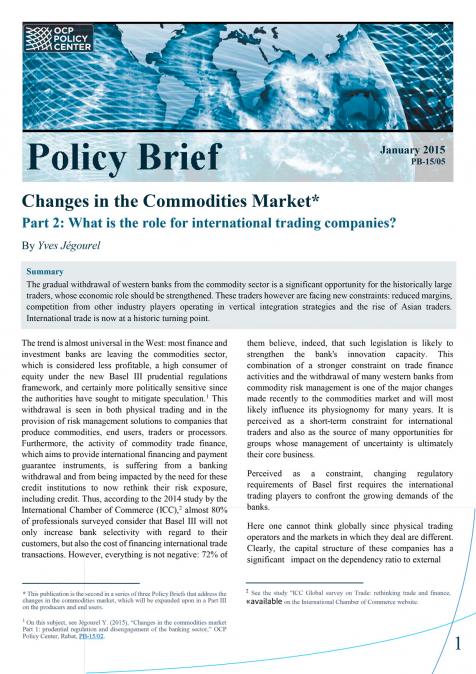Publications /
Policy Brief
Policy Brief
Changes in the Commodities Market - Part 2: What is the role for international trading companies?
February 4, 2015
The gradual withdrawal of western banks from the commodity sector is a significant opportunity for the historically large traders, whose economic role should be strengthened. These traders however are facing new constraints: reduced margins, competition from other industry players operating in vertical integration strategies and the rise of Asian traders. International trade is now at a historic turning point.




